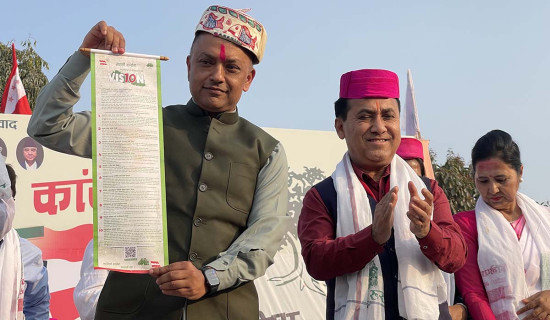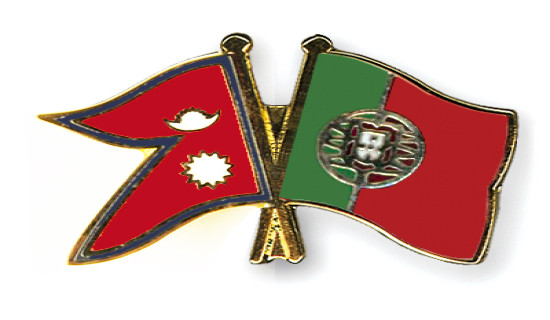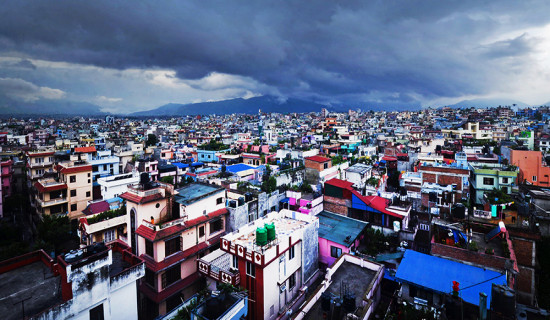- Thursday, 19 February 2026
Breaking The National Politics Of Deadlock
Nepali politics has reached a situation of deadlock between the government, mainstream political parties, Generation Z groups and monarchist forces. Deadlock is a situation of national crisis where it is difficult to bring all the political actors to the normal course of politics through an all-inclusive dialogue. This crisis has excruciatingly removed established political leadership from the routine work of politics, compelling them to adjust to new survival art. It has also thrown Nepalis back to themselves and brought the centrality of President Ram Chandra Paudel and the Election Commission to mediate conflicting demands to prepare for the March parliamentary election.
The interim government, led by Prime Minister Sushila Karki, also suggested that all political parties work for peace. Communist Party of Nepal Unified Marxist Leninist (CPN-UML) deems the government illegitimate, formed not by the legislature but from the mandate of Gen Z’s revolt. It is seeking to restore the House of Representatives either through the Supreme Court’s verdict or a counter-revolt. Conflicting approaches to the election may lock the nation in an ugly deadlock, marking the paralysis of political power. It will devalue the utility of political leadership and eventual collapse of the regime already burdened with the awful size of political classes and redundant structures, thus trapping the nation in a downward spiral.
Leadership transition
UML leaders think that the revolt of Gen Z is incited by outside powers to unseat Prime Minister KP Oli for his patriotic stand on the border, balanced foreign policy, imbalanced since 1990 and bring foreign digital spaces under national regulations. Young leaders from UML, NC and Maoist Centre feel the need for reforming the style of party functioning and are asking their patriarchs to resign in order to ease leadership transition and renewal. NC president Sher Bahadur Deuba has quit from active politics, named Purna Bahadur Khadka as acting NC president and is expected to address the legitimate grievances of Gen Z.
UML and the Maoist Centre are continually facing internal fracas for party reforms and dispersing the buzz of left unity. The politics of the constitutional status quo, devoid of public policy accountability and responsibility for public welfare, may crush the aspiration of youth for social transformation. Gen Z groups, though divided internally on issues, leadership and orientations, cracked open the seething contradictions, ironies and cauldron of national parties of all hues. It has unlocked the possibility for mainstream parties to engage in the art of the possible - internal reforms, court litigation, confrontation and crowd protest to score leverage.
UML chair Oli has opposed the formation of a new regime and a powerful commission under former chairman and judge of the Special Court, Gauri Bahadur Karki, to inquire into the killing of people and destruction of public and private properties. Gen Z groups are calling for the establishment of a powerful commission to take action against grand corruption, political purge and thundering for intergenerational justice. The younger generation of NC leaders seeks to understand the total political situation in which a sudden youth revolt occurred, challenging the numbed adoration of leadership and the need for moral and rational factors in political and economic life.
Gen Z groups are demanding that the government arrest Oli and former Home Minister Ramesh Lekhak and others for ordering the brutal shooting of innocent 19 youths during their agitation, nationalise the property of corrupt leaders, organise elections for the direct election of the executive head, abolish impunity and create good governance. The government fears that any action against top leaders of parties can stir up confrontation, vitiate national security and election-friendly milieu. It is difficult to organise peaceful and fair elections without the cooperation of mainstream parties and a robust national security system, which seems weak as over 1,000 rifles were looted by infiltrators during the revolt and out of 14,000 criminals who broke the jail, 8,000 of them have yet to be arrested.
Election demands moral boosting of security agencies and a heavy dose of civic education to voters and candidates. The main challenge for the nation is how to reduce the use of force in political relations and create an environment of order, justice and peace. Maoist Centre, Rastriya Swotantra Party and Rastriya Prajantantra Party are eager to participate in elections. The former two favour the direct election of the executive head and supported the revolt of Gen Z with the hope that the government of NC and UML collapses, paving the way to create a new political space for maneuver in the power game.
The monarchist forces have threatened to organise a revolt aiming to restore the constitutional monarchy and the Hindu State if their demands are ignored. To them, it is the only step to bring the various centrifugal political forces together for cohesive nation-building. Nepali political parties are habituated to organising an extra-constitutional mode of political change. The legitimisation of violent acts as an instrument of politics has given birth to a political culture of revenge, negation, abuse of rights, privileges and impunity against the collective need of people for better wellbeing. This is the reason, despite regime change through extra-constitutional means, the condition of the people remains unchanged and hope for better governance remains agonizingly tantalising.
The movement of Gen Z groups ended in a compromise with the parties facilitated by President Ram Chandra Poudel and Nepal Army chief Ashok Raj Sigdel. They agreed to retain the constitution while dissolving the parliament. But the expectation of outcome from this compromise is revolutionary without its plenty of preconditions and cohesive strategic action. Revolution demands not just regime change from electoral legitimacy to non-elected ones but rapid growth of national consciousness, swift institutionalisation, mobilisation of support, leadership change and creation of a new political culture based on modern, democratic spirit, human virtue and public goods. But these conditions are unmet.
The confinement of the government's mandate to hold parliamentary elections in no way ensures the prospect of political transformation. Elections under constitutional incongruity, proportional system and unequal playing field are less likely to provide a mandate for a single party to form a stable government, amend the constitution and secure responsive rule. It is unclear whether the elections will bring basic change in the political landscape and deter leadership from indulging in hedonistic pleasure without public duty and accountability, as the Nepali state is fiscally weak, the polity and constitution are contested and constitutional bodies are partisan, unable to perform impartially in the public interest.
The seeds of political instability in Nepal spring from aspirational politics, an aspiration stoked by an imbalance of rights and duties in the constitution, rights-based development which collides with the deficits of public budget, party programmes promising more than they could deliver and growing international obligations beyond state capacity to fulfill. Identity-based, populist and radical forces add extra combustible elements, offering free-riders, special interest groups and opportunistic elements within parties to play the role of spoilers, inserting intense factionalism and impulses for the cartel. They turn national politics into a zero-sum game, not a deadlock-resolving game.
Non-performance of leaders has made Nepalis cynical about politics and eroded their belief that the edifice of a secular federal democratic republic is better accountable and responsive to their freedom, prosperity and peace. The declining ownership in the constitution and the interest of various parties to amend, replace or abolish it reveal only the ploy to capture central space. The refutation of the cabinet decisions on the Citizenship Act, Ncell, dissolution of parliament and criticism of the government on the non-execution of many of its verdicts by the Supreme Court indicate low sensitivity of leaders to public interests.
The corruption perception and human rights indices put Nepali political classes in a negative light. Improvement in these conditions, integrity of polity and trust building across the political spectrum can de-escalate conflict dynamics and create a ground for breaking the deadlock. This requires building the Nepali state’s capacity to constitutionalise political, civil society, business, deep state elements and ward off geopolitical elements stepping into its legal, political and fiscal boundaries. The state’s ability to stand above political parties enables it to perform impartially in matters of public goods - security, justice, voice and opportunity. Only transformational leaders with a rational vision, purpose and direction can set the coherence with the people.
Pathological leaders
Pathological leaders are only interested in power, perks and privileges that can undermine the outreach of the Nepali state in society. They fail to apply cooperative solutions to the deadlock. The ubiquity of pathological leaders has only increased the costs for life, liberty and livelihood of Nepalis and tarnished the image of a peaceful nation. Lack of national confidence and bereft of statesman virtues, they had only succumbed to global prescriptions on the nation’s democracy, development and peace, reduced the Nepali state’s depth and scope of authority to personalised parties, thus reverted to regime-centric conceptualisation of security and justice, leader-oriented constituency-based projects and party-oriented rule of law, voice and delivery of public goods.
Partisan civil society, business and solidarity organisations added fodder to perpetuate the deadlock. Nepali leaders thus failed to create common ground for the optimization of values, interests, ideology and identity and bring attitude change as per the democratic spirit, so that party politics does not become a winner’s game but creates impartial opportunities for people within the nation so that they do not have to emigrate abroad for survival.
Only the rational perception of the nation’s problems is capable of breaking the deadlock. The changed political situation requires mutual accommodation of interests and a matching pledge to public welfare. Having a reason for engaging in politics is to redeem political life as an apostle of the public interests, able to marshal unity in diversity through specialised skills and political wisdom.
(Former Reader at the Department of Political Science, TU, Dahal writes on political and social issues.)



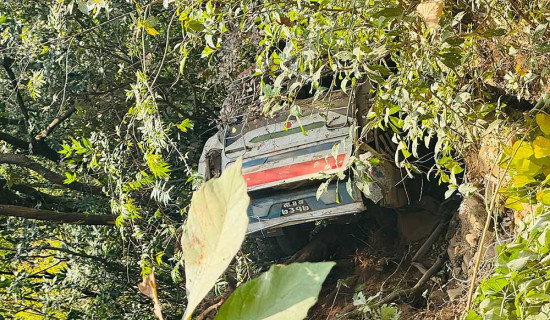
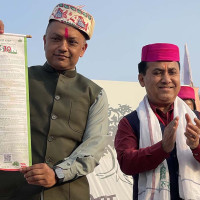
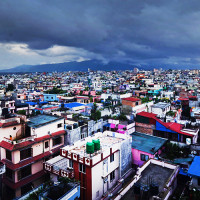
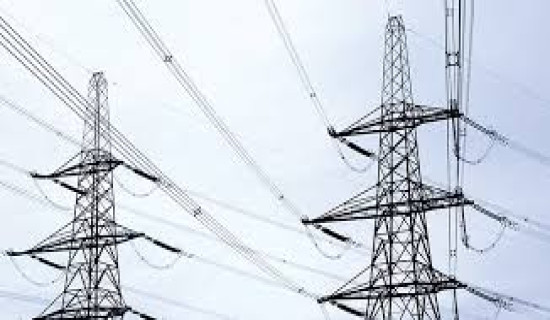
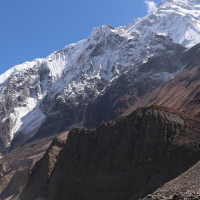
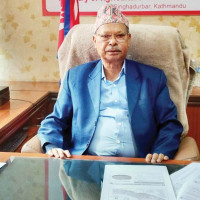
-original-thumb.jpg)
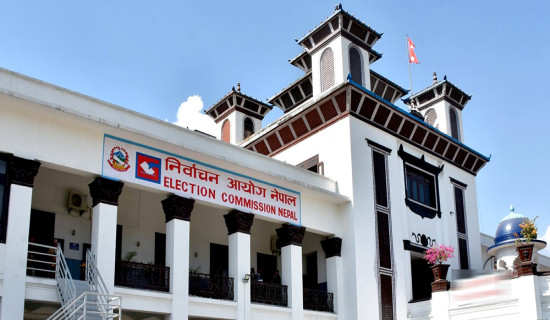
-original-thumb.jpg)

